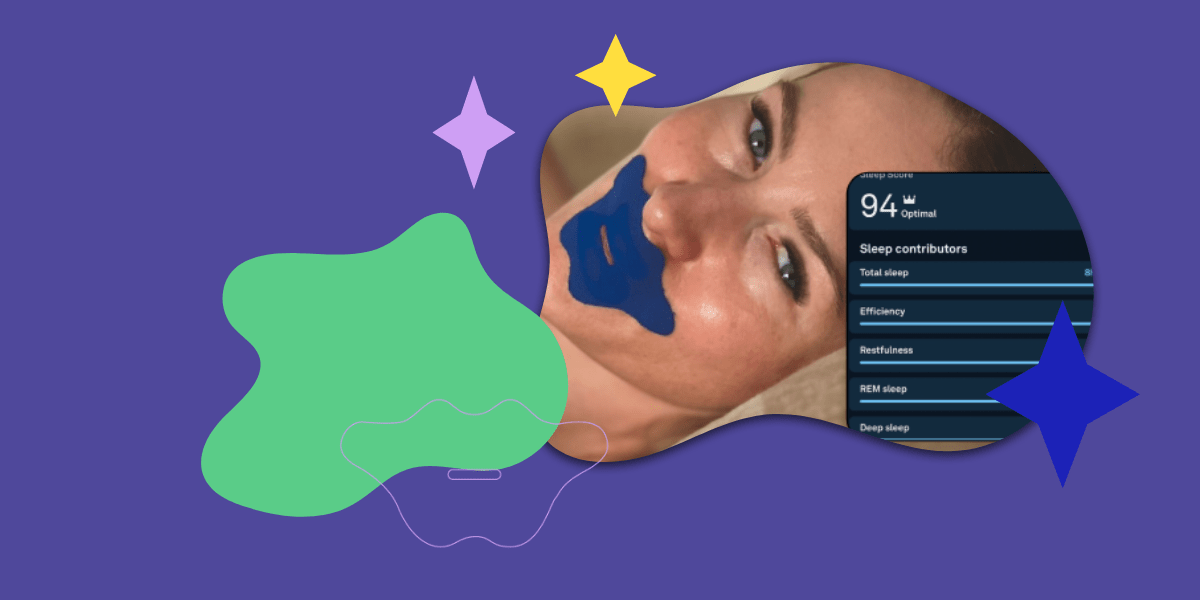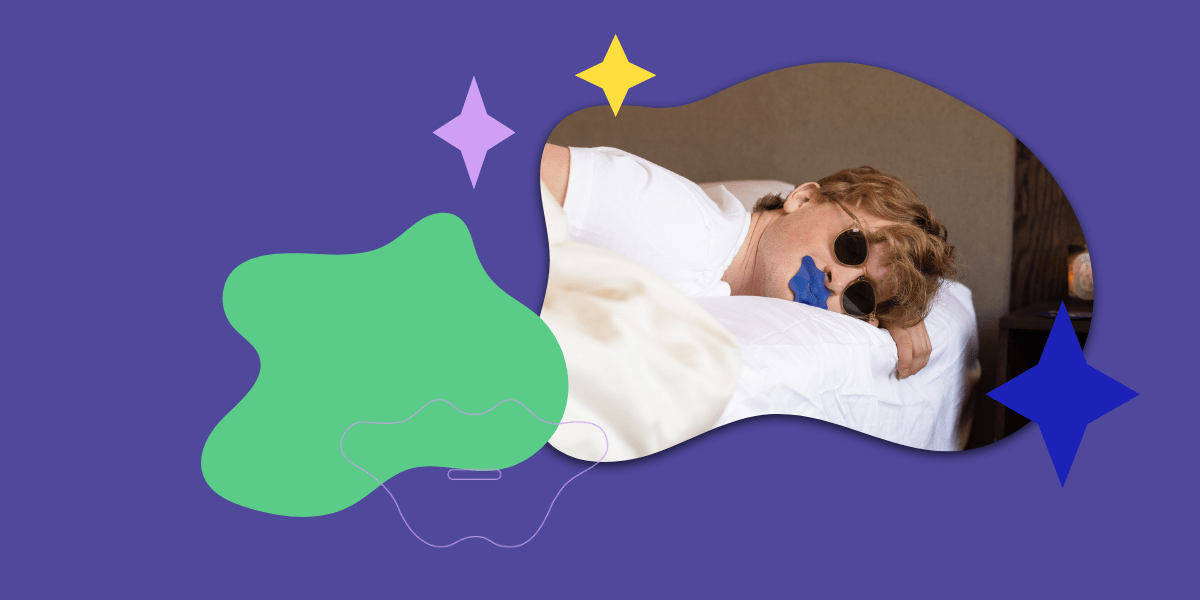What Your Sleep Score Actually Means

Understand your numbers. Upgrade your nights.
You wake up. Check your app.
Sleep Score: 72
Cool… but what does that even mean?
If you’ve ever looked at your Oura, WHOOP, Fitbit, or Apple Health sleep report and felt confused — you’re not alone. That sleep score isn’t just a random number. It’s a summary of what happened in your body while you slept — and it can actually tell you a lot about your energy, performance, and mood the next day.
Let’s break it down.
What Is a Sleep Score?
Your sleep score is a composite number — typically out of 100 — that reflects how well you slept, how deeply you recovered, and how aligned your sleep was with your body’s natural rhythm. While the formula varies by platform, most track three core areas:
1. Sleep Duration
2. Sleep Quality
3. Restoration / Recovery
1. Sleep Duration
How long — and how consistently — you actually sleep.
Not time in bed. Not time trying to fall asleep.
Your score is based on actual sleep time.
💡 The goal: 7–9 hours of real, restful sleep per night (if you’re an adult).
But there’s more to it than just total hours. Here’s what also matters:
🕓 Sleep timing
Your body has a chronotype — a natural rhythm based on your biology. When you regularly go to bed and wake up in sync with it, your sleep score improves. Late nights, weekend lie-ins, or inconsistent bedtimes can throw off your circadian rhythm and tank your score.
🔁 Consistency
You don’t need to be perfect — but the more consistent your sleep and wake times are (even within a 30–60 min range), the better your sleep quality and recovery will be.
2. Sleep Quality
What happens during your sleep.
This looks at sleep stages — how much time you spend in deep sleep and REM sleep, and how efficiently you cycle through them.
We cycle through 3 main stages of sleep: light, deep, and REM — typically in 90-minute cycles, repeating around 4–6 times per night.
🌊 Deep Sleep
Usually happens in the first half of the night.
This is when your body repairs: muscle recovery, immune system activation, cellular cleanup.
- Goal: ~20–25% of total sleep time (ideally over 90 minutes)
- Low deep sleep = physical fatigue, muscle soreness, immune dips
🧠 REM Sleep
Comes in longer bursts later in the night.
Your brain processes memories, emotions, and stress — it’s where dreams live.
- Goal: ~20–25% of total sleep time (ideally over 90 minutes)
- Low REM = brain fog, irritability, trouble focusing
3. Restoration
How well your body recovers overnight.
This part is often misunderstood — but it’s key to how good you feel the next day.
❤️ Resting heart rate + recovery rate
A well-rested body sees a steady resting heart rate (RHR) drop after falling asleep. That decline shows your nervous system is calming down and shifting into parasympathetic mode (aka rest and repair).
- Better score = faster RHR drop in the first half of the night
- What hurts it: late-night eating, caffeine, stress, intense workouts too close to bed
😴 Sleep latency
How long it takes you to fall asleep after getting into bed.
Shorter = better — ideally between 10–20 minutes.
Too long means you’re overstimulated; too short (under 2–3 minutes) can signal exhaustion.
👀 Micro wake-ups
You may not remember them, but your body does.
Too many wake-ups (from noise, stress, snoring, or light in the room — even from a phone) lower your score and leave you feeling groggy. One of the most common causes? Mouth breathing. It dries out your throat and disrupts deep sleep — which is why many people swear by mouth taping to prevent it.
So, What’s a “Good” Score?
General ranges (based on Oura / WHOOP benchmarks):
- 90+ → Peak performance mode. You’re recovering well and sleeping efficiently.
- 80–89 → Solid. Keep doing what you’re doing.
- 70–79 → Some disruptions or inconsistencies. Worth adjusting.
- Below 70 → Likely poor sleep quality, inconsistent timing, or low restoration.
How to Hit 90+ Sleep Scores (Consistently)
Here’s what actually works — no fluff:
✅ Stick to a sleep schedule
Your circadian rhythm loves consistency — even on weekends. Go to bed and wake up in line with your chronotype, around the same time each day.
✅ Set up your bedroom environment
Make it cool, dark, and quiet. Ideal temp: 16–19°C (60–67°F). Use blackout curtains, white noise if needed, and ditch anything that disrupts your wind-down.
✅ Don’t eat too late, and skip caffeine in the second half of the day
Late meals and stimulants can spike your heart rate, disrupt deep sleep, and delay recovery.
✅ Manage your light exposure
Use dim, warm lighting in the evening. Block blue light with filters, glasses, or a strict “no screens” rule before bed.
✅ Create a pre-bed ritual
Stretching, journaling, or putting on your mouth tape — anything that signals to your body: it's time to wind down.
✅ Focus on breathing
Switching to nasal breathing improves oxygen flow and boosts deep sleep. (Yes, really.)
TL;DR
Your sleep score isn’t just a number — it’s a snapshot of how well your body is functioning at night.
Understand what’s behind it, and you can finally take control of how you feel in the morning.





Comments